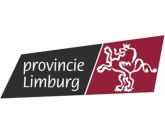Province of Limburg

The province of Limburg, as an intermediate government, is responsible for the implementation of the guidelines formulated by Europe and the Flemish government. This means the province has extensive experience in designing policy frameworks and translating these – together with local and regional partners - to concrete actions. The province is a forerunner in participatory environmental policy, opting for a well structured integrated approach, where economical, ecological and socio-cultural ambitions are taken into account as well as all relevant policy domains.
With the TACO2-plan (Total Action plan CO2 neutral), the province has the ambition to become CO2-neutral by 2020. The province installed several new instruments (subsidies, do-tanks, policy frameworks, etc. ) and reoriented several others. The province promotes the use of renewable energy sources and sets up cooperatives to make sure the goals are being met in a sustainable way.
The province coordinates the development of green infrastructure at a regional scale. Increasing connectivity in urban and agricultural areas (outside but connecting to Natura2000) and guaranteeing a basic ecological quality in areas where the protection of biodiversity competes with other land uses, is part of the province’s core business. The province has the necessary tools and instruments to coordinate this process.
The provincial policy, received international recognition. At the biodiversity summit of COP9 and COP10 of the Convention on Biological Diversity, this policy was presented. In 2008, 2009 and 2010 the province received the price of respectively the best, second best and third best project from the Countdown 2010 initiative.
For more than 30 years the province is very active in the field of CEPA (communication, education, and public awareness) and working with volunteers in education programmes and monitoring projects.